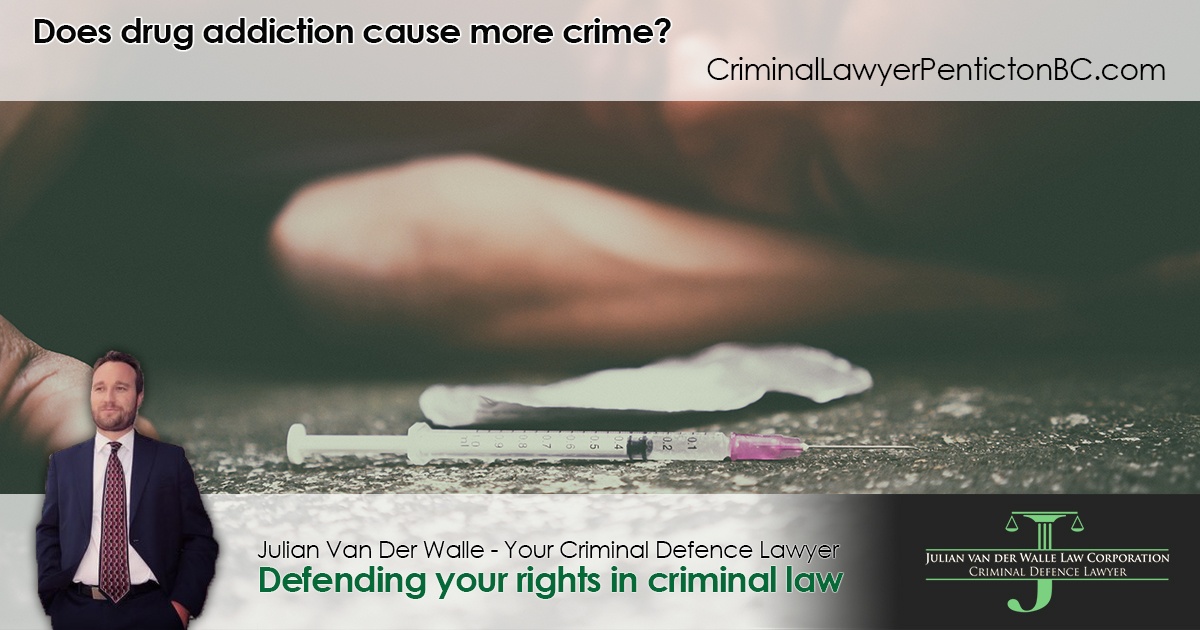Does drug addiction cause more crime?

Many in Canada often associate drugs with crime, and in many cases, the possession or use of drugs is itself a crime. More recently, a spotlight has been placed on drug-related incidents due to the opioid crisis afflicting the nation. Sociologists have spent decades (if not centuries) analyzing the association of crime and drugs, but despite a multitude of research, the jury is still out on this very important societal question. Does drug addiction cause more crime? If it does, how do we design a justice system that cures these societal problems? These important questions cannot truly be answered to anyone’s satisfaction because drug addiction is a pervasive problem in society that has no cure. The best solution is to understand the problem in ways that can help better manage it.
Types of Crime Related to Drug Use
When most people discuss the association between drug addiction and crime, the image that comes to mind is one of drug-related shootings and gang violence over drug distribution areas. While this view of drug-related crime is flashy and easy to understand, drug-related murders and assaults actually make up a very small portion of drug-related crime. Instead, the crimes most commonly related to drug use are much more mundane.
The most common crime committed related to drug use is simple theft or shoplifting. Many who suffer under the addiction of drugs like opioids must deal with the reality that drugs are expensive to acquire. For example, many who abuse opioids often spend hundreds of dollars every day on expensive pharmaceuticals to feed their abuse habit. As a result, many serious abusers of drugs will steal money or items that they can sell to pay for a drug habit.
Another very common drug-related crime is domestic violence. Many narcotics induce altered mental states which can make abusers more prone to depression or other mental health problems. Additionally, the mental and emotional strain of carrying a drug habit and providing for a family can cause immense stress and strain in the home. As a result, domestic violence assault offenses can occur as a result of drug use.
The Canadian Justice System’s Treatment of Drug-Related Offenses
Generally speaking, criminal defendants will be punished for all crimes that they commit regardless of whether the crime was a drug offense such as the distribution of illegal drugs or if the crime was related to drugs such as a theft intended to help pay for a drug habit. That said, in pronouncing sentencing, many judges in Canada are keen to examine all of the circumstances surrounding a crime and then sentence the offense accordingly.
Often, judges will attempt to remedy drug-related offenses by sentencing a criminal defendant to drug treatment and recovery programs rather than sentencing them to jail time. These drug rehabilitation programs are rigorous programs designed to help cure drug addiction and provide services such as career training and living assistance to former drug abusers. These programs have varying degrees of success, but for those who complete them successfully, recidivism rates are low. Moreover, crown counsel may often be open to a plea deal that includes lower sentencing in exchange for drug treatment.
Seeking Help for Drug-Related Problems
It is undeniable that many abusers of drugs require a support system to beat their addictions. In many cases, friends and family are willing to help drug abusers recover from their addictions. There are also many professional organizations with a mission of helping drug abusers recover and re-enter society. If you or a loved one is suffering from a drug addiction, the worst thing you can do is stay silent. Society functions best when those around us help each other, and there are many ways to help drug abusers clean up their lives and become productive members of society.
Unfortunately, many criminal defense attorneys are on the front lines of addressing drug addiction problems. While we do not often ask to be placed in the position of assisting drug addicts with treatment, we do so gladly. If you would like assistance identifying resources in BC that can help drug abusers seek treatment, please contact our office and we can refer you to a resource or program that is best suited to your particular situation.
Related Stories
Why You Should Hire a Vernon Criminal Defense Attorney
As a whole, the Canadian justice system is very fair. The accused enjoy the right to be present and be heard in court, the right to remain silent, and the right to representation by legal counsel. That last right is one of the most important rights of all. This is...
Bad IRP Decision? What Can You Do About It?
Bad IRP Decision? What Can You Do About It? Drivers who are caught driving under the influence by the police may receive an Immediate Roadside Prohibition (IRP) on driving. An IRP is a temporary driving suspension that prevents the recipient from driving for a set...
Understanding Your Rights at a Roadblock
Roadblocks are a tool commonly used by the police in Canada to detect traffic infractions and alcohol violations on a large scale. In most cases, drivers will see roadblocks set up on major roads on holiday weekends or late at night around the time when bars begin to...
REQUEST A FREE CONSULTATION
Call 1.866.706.8857
Or fill out the form below to receive a free and confidential initial consultation.
